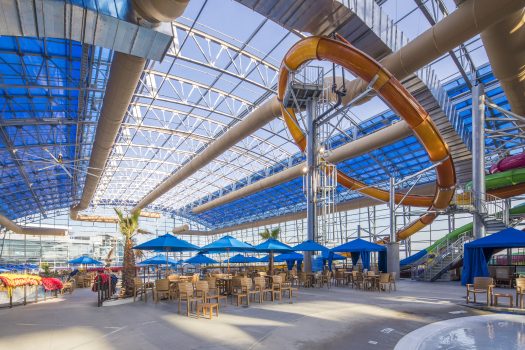H&LA President, David J. Sangree, MAI, CPA, ISHC added some key insights for a Crain’s Cleveland Business article about the Downtown Cleveland and University Circle hotel growth and demand. STR reports the number of room sold in the Cleveland market has surpassed July of 2016 during the RNC.
Published by Stan Bullard/Crain’s Cleveland Business
Published date: November 2018
Downtown Cleveland and University Circle hotels crossed a threshold last July that once might have been thought unreachable: The number of rooms sold surpassed July 2016 during the Republican National Convention, according to data from lodging data and analytics provider STR.
“It’s all starting to come together,” said Teri Agosta, general manager of the Hilton Cleveland Downtown, 100 E. Lakeside Ave. The panoply of conventions, events, the debut of the blockbuster musical “Hamilton” at Playhouse Square, the FRONT International: Cleveland Triennial for Contemporary Art festival, and many more helped sell 140,457 room nights in the city, up 9.5% from 139,147 during the same month in 2017. In the 2016 convention year, the city sold 131,146 in July, STR says.
Of course, the convention that crowned President Donald Trump as the Republican nominee lasted just four days. But it provides an indelible marker in the region’s hospitality history. The number of rooms sold — termed “demand” by the industry — shows the city’s hotel market is growing after the big run-up in 2016 with the 600-room Hilton and five other new hotels.
David Sangree, president of the Lakewood consultancy Hotel & Leisure Advisors, said, “These are very good numbers. The convention center is being used a bit more. There really is more group demand downtown and special events.”
However, Sangree noted, business growth in the suburban hotels is more limited, in part due to the addition of new hotels this year from the AC Hotel in Orange Village to the Aloft in North Olmsted.
For Cleveland and suburbs from Madison to Lorain in the Cleveland Metropolitan Statistical Area, occupancy through the end of September is at 65%, compared to 61% in 2017. The average daily rate in the region climbed to $107.72 through September this year, up 2% from $105.72 in the same 2017 period.
Overall, demand in the Cleveland region climbed 5.6% to 4.27 million rooms sold through September of this year from 4 million in 2017’s similar period.
The turn of events will deal a big blow to the market next year, the first since LeBron James left Cleveland for the Los Angeles Lakers. One hotel insider said hotels benefited from James as people came to Cleveland just to see him play. His departure, and the likelihood that the Cavaliers will not return to the playoffs, will sap sales.
She said cultural tourism will remain strong, because a weekend in Cleveland to see a show may cost less than the cost of admission in New York City. At the Ritz-Carlton, the recent renovation included adding a kosher kitchen. That means the city will have an alternative for the Jewish community to going to New York City for a Ritz-tier kosher Passover or wedding.
The city needs to work to extend typical visitor stays to more than two days, but she said the growth in the hotel business in Cleveland is “magical.”
David Johnson, spokesman for the Huntington Cleveland Convention Center, estimates the convention center alone helped sell 92,000 nights so far this year. And things look better next year for the 5-year-old center.
However, the other tipping point the region faces may be beyond its control as the likelihood of a recession grows, which will cut business travel and trim leisure travel.
“The forecast is that the economy may stay strong another 18 months,” Agosta said. “We’ll ride the wave now and see what’s dealt.”


